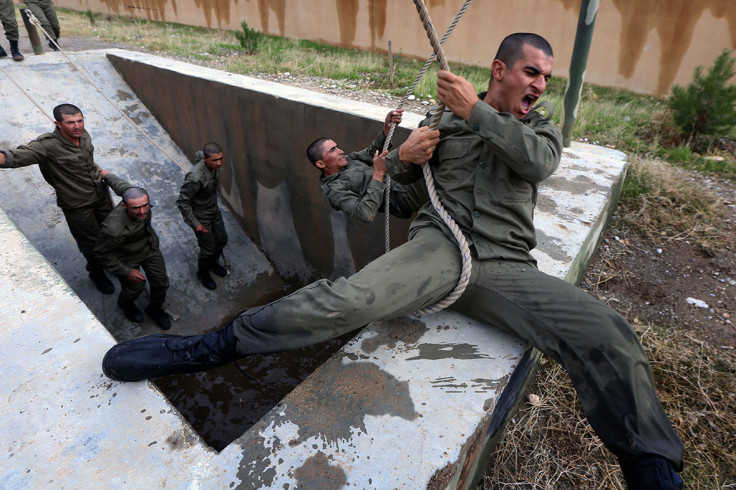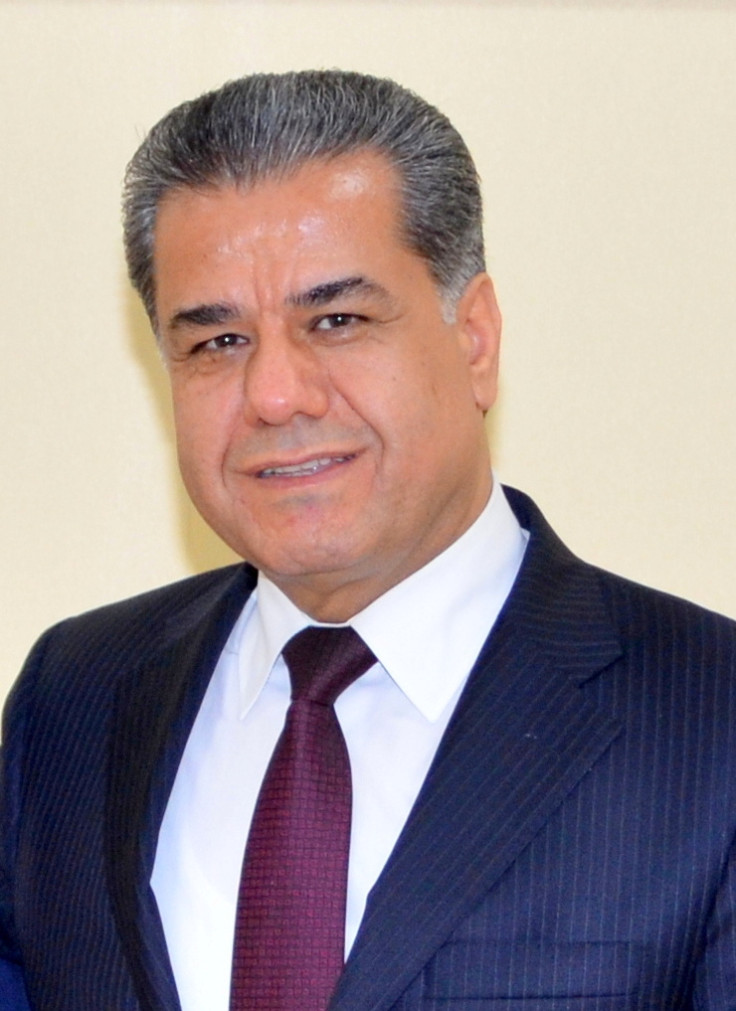Iraq Isis news: Send Kurds more guns to help defeat Islamic State, says foreign minister Falah Mustafa

Kurdish forces fighting the Islamic State (formerly known as Isis) need more guns, tanks and heavy artillery to push the radical Islamist group out of Iraq, a senior Kurdish minister has told IBTimes UK.
Speaking from his office in Erbil, Falah Mustafa, foreign minister of Iraqi Kurdistan, said that 1,000 Kurdish soldiers had so far been killed in the fight against IS with a further 5,000 wounded.

He said that the Kurdish army - known as the peshmerga - was on the offensive and had successfully captured 20,000 square kilometres of previously IS-held territory in northern Iraq, but that the Kurds needed more weapons.
"We are thankful for the support that has been provided so far but we need more. More weapons, more ammunition, more training and coordination," he said.
An international coalition led by the US, Canada and European nations have been involved in backing the Kurdish campaign against IS, which began in June 2014 when the Islamist group conquered Mosul. A third of Mosul residents are Kurds, and as IS spread out from the city into both Kurdish and Arab areas the peshmerga have pushed back.
'We fight on behalf of the free world.'
More recently, US air strikes have targeted IS positions in the southern city of Tikrit, backing the Iraq army and Iranian-backed Shia militias. The Iraqi army and militia fighters are pushing north towards IS-held Mosul.
Kurdish fighters are already on the borders of Mosul but are reluctant to enter the Sunni Arab-majority city without a "coordinated effort" from the southern Iraqi forces, local Sunni communities and the international coalition, said Mustafa.
"Mosul is key to defeating IS in Iraq as a whole, which is why the front line is there. There have been clashes – they have attacked, we have attacked. The issue is that [...] it has to be an Iraqi attempt that has to be coordinated with the Iraqi army, the Sunni community, peshmerga support and the US and the coalition," he said.
Mustafa said that the Kurdish Regional Government (KRG) had given a list to its international partners of the weapons it needed, which included tanks, heavy artillery, Humvees, mortars and APCs. The Kurds were currently fighting with poor quality weapons, and did not have either the equipment or training to deal with the threat of IEDs, which have killed 70% of Kurdish soldiers so far.
The minister said that while IS presented an existential threat to Iraqi Kurdistan, pushing on its borders, the peshmerga were fighting the militants on the behalf of the world. The foreign fighters that have flooded in to Syria and Iraq – many of them from Europe – meant that the war was an international responsibility, he said.
"It is our joint responsibility to be able to deal with this. IS is a common threat, it affects everyone. It is true that we are fighting for our people, our land and our values but [...] we do not feel that we are fighting only for ourselves, we fight on behalf of the free world," he said.
Mustafa was reluctant to put a date on either the operation to take Mosul or the defeat of IS in the long term, but he said that even when the fighting was over, the war would not be won.
'The federal government has to make sure that the Sunni community in the west of Iraq feels that they are respected.'
It will be critical, he said, to re-build relations between the Shia-dominated government in Baghdad and the Sunni tribes of Western Iraq, where radical elements had been able to exploit anger in cities such as Fallujah and Ramadi that Sunni Iraqis were being discriminated against.
"The federal government has to make sure that the Sunni community in the west of Iraq feels that they are respected, that they are a partner and are treated properly. It is not only a military fight, there is a political aspect – for the Sunni community to feel that they are [part] of the process," he said.
The KRG has run Iraqi Kurdistan since the end of US-led war in 2003 and was looking increasingly likely to split from Iraq prior to 2014, when IS took Mosul. Iraqi Kurdistan has its own government, military and borders, and has had a degree of autonomy since the 1990s, when a no-fly zone was imposed over the northern Kurdish area of Iraq.
© Copyright IBTimes 2024. All rights reserved.






